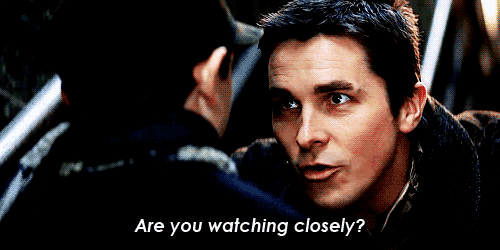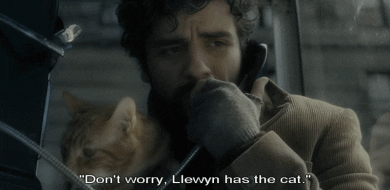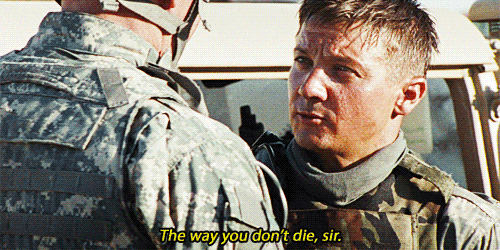#by expanding the franchise but (for the first time!) explicitly limiting it to men
Note
It's not quite as xenofic as Homestuck, but one thing I particularly enjoy is exploring alternate ways that our own sexual/gender norms might have developed in alternate histories. It can still get kind of reversal-y (the two I've spent the most time thinking about can be summarized as "world where transgender issues hit mainstream acceptance first, not sexuality issues" and "world where feminism is clearly a right-wing movement and vice versa"), but I think trying to construct a scenario where such a reversal is plausible, and looking at the nuances that would flow out of that, still makes it worthwhile.
it can be! My post was ambiguous on this front, but I don't think that scenarios that aren't some kind of flipping or playing with our normas are strictly superior as writing per se. There's lots of interesting stuff that can come of that, as you say.
I just think that most takes on fantastical/spec-fic sexuality & gender normas are that, and so I find it pleasing and interesting when something is not.
#i'm not really sure how you construct the latter scenario you mention#but it sort of depends a lot on what we're using 'conservative' to mean#I do think in the real world a lot has been done (i'm ambivalent wrt the intentionality) to place feminism and leftism in opposition#and capture feminism for Certain Kinds of Women#when that ought not to be how it is#see regarding that first point the fact that the Peterloo protestors were agitating for wider franchise alongside women who wanted the vote#and the govt successfully set the women side of this back 50+ years and robbed them of their working class male allies#by expanding the franchise but (for the first time!) explicitly limiting it to men#so world in which they didn't do that would be fun actually#as would world in which the prior set of circumstances hadn't *effectively* kept women from voting when they were not explicitly barred#(basically you had to own land and the way property law worked meant women almost never did in their own right)
1 note
·
View note
Text
Pinning Down My Kind of Movie
Warning: Wanky, self-indulgent ramblings about Hollywood auteurs to follow
A couple of days ago, I sat down with my housemate to watch Miami Vice (2006) directed by Michael Mann (Heat, Collateral) and starring Colin Farrell and Jamie Foxx. Since we moved into our place, my housemate has gradually been exposed to my taste in movies, and the other day, sat in front of a strung-out Colin Farrell ordering mojitos to ‘Numb/Encore’ during an undercover sting, he finally confronted me with a crisis-inducing statement: “You know, I can’t figure out what your kind of movie is.”

If I am to be totally honest, it doesn’t take much to send me into an existential tailspin, but this observation got me thinking enough to want to sit down and write about it, so here we are. My name’s Daniel and I love movies! When I was a teenager, I was certain I wanted to be a film critic, so I started writing in earnest. The problem was I wasn’t that well rounded as a viewer. I confined myself to the world of comic book movies and Disney animation. I turned my nose up at pretty much everything else before realising that I didn’t actually know much or have much to offer about film. Instead, I turned to music criticism because that’s where my knowledge base is.
That being said, I still loved movies, and as the years have gone on, I have been rapidly expanding my film knowledge and broadened my horizons extensively. I got called a “film buff” for the first time recently, which really shocked me. I still don’t feel well-watched enough, or knowledgeable enough to fit a moniker like that. Maybe it’s imposter syndrome, but I really feel like I have a way to go yet.
My Letterboxd bio includes the phrase “admirer of film nerds”, and I think that admiration informs the entire way I look at the world of film. I read a lot of reviews and listen to a lot of podcasts by smart, unpretentious film obsessives like David Sims, Griffin Newman, Katey Rich, Karen Han and Bilge Ebiri, but that same admiration also informs the kind of films I enjoy the most. In confronting the statement from my housemate, I realised that while there are some genres I gravitate to more than others, my taste in movies is largely defined by the extent to which I can pick up on a single authorial voice driving the film. A director, writer, actor, composer or cinematographer who has a real, obsessive love for their craft whose influence and personality can be felt in every layer of a film’s construction. Franchises are a different beast, but it’s usually the entries in a franchise that feel like passion projects for individual filmmakers that I love the most, which is why Iron Man 3 is by far my favourite Marvel movie.

Over the last few months I’ve started building a fairly extensive Blu-Ray collection. I love physical media because I like to have a tangible representation of the art I love, but it also allows me to physically organise my thoughts about film rather than moving things around on a spreadsheet or in my head. It has also had an effect on how I watch films. Spending money on a film makes me feel more obligated to watch it through to the end in one sitting, to not be on my phone at the same time and to pay closer attention. It’s also made my approach to picking the films I watch more considered. I’ve been hunting down the films I haven’t seen by directors I love, fuelled by newfound completionism, and I’ve been subconsciously prioritising this kind of auteur-driven mindset in a way that has revealed, over time, who my favourite filmmakers are.
So, with that in mind, let’s transform this meandering, self-indulgent think piece into a meandering, self-indulgent listicle. Here are the filmmakers that have changed the way I watch movies:
Christopher Nolan
I know this is a bit of a film bro cliché, but I promise I’m not one of those film school douchebags who’s convinced they’re going to be the next great big budget auteur. Like a lot of other people my age, I discovered Christopher Nolan through the batman movies. I was taken to see The Dark Knight by my parents when I was 10 years old, not having seen Batman Begins, and it blew my mind. For years after that, I was one of those arseholes who had a terrible Joker impression that I whipped out at parties, until I became aware of the cliché and never did it again.
In the years since I’ve watched all of his other movies and gained a new love of Interstellar and The Prestige – movies that taught me a lot about the authorial voice and interweaving a central theme into every element of a film. I also learned that just because I find it annoying when the same tropes turn up in every Quentin Tarantino movie, recurring tropes throughout a filmmaker’s catalogue aren’t universally a bad thing.

The Coen Brothers
Representation is important. The tough thing about watching films from an auteur-driven perspective is that so many of the most important filmmakers in Hollywood are approaching their films from a white, Christian, male perspective. Scorsese is a particularly difficult director for me to appreciate because so many of his films are overtly informed by his Christianity. My Jewish identity is the most significant aspect of my identity, so naturally I’m always looking for films made from a Jewish perspective, overt or otherwise.
Whilst the Coen brothers don’t always make movies about explicitly Jewish characters or subject matters, their Jewishness always comes out in their writing, particularly in the totally undidactic way they approach the subject of faith in almost every film they’ve made. Their approach to God, fate, spirituality and religion is never one of moralising certainty, but rather a questioning one, which is a fundamental aspect of Jewish existence. I feel represented on multiple levels in the films of the Coen brothers, particularly in Inside Llewyn Davis which is my favourite film of the last decade, in ways that other directors could never manage. For the same reasons I will forever be excited about the potential of the Safdie brothers.

Stephen Spielberg
Whilst the Jewishness of Stephen Spielberg is a major attraction for me (Catch Me If You Can, his moody Christmas movie, comes across as weirdly Jewish to me), the thing that has solidified the guy as one of my favourite filmmakers is his approach to telling true stories. Unlike the Coen brothers, it’s Spielberg’s self-assuredness and didacticism that fuels my love of his work. His spate of recent, politically switched-on, historical dramas (Lincoln, Bridge of Spies and The Post) are all incredible achievements in effectively giving quiet dramas about people talking in rooms the tension and stakes of great action movies.
It’s the obvious thing to say at this point that Spielberg is one of the few genuine masters of the cinematic language, but while most will point to his massive, populist movies of the 80s and 90s as the definitive examples of that, I would point to his spottier late career with its moralising and earnestness as where his most exhilarating work lies.

Michael Mann
I like that Michael Mann is uncompromising. He makes films which, based on premise and star power, should be commercial knockouts, but they almost never are. He has an incredibly clear sense of self, and like Nolan has a lot of frequently recurring tropes in his films. Michael Mann makes films about Men Making Tough Choices™. He builds detailed, intensely researched worlds and he loves crime!
There’s something special when a filmmaker can tread the same ground over and over again and never convey the same central message twice. Nearly all of Mann’s movies are gritty, neo-noir thrillers with an obsessive attention to detail, but all of them deal with a totally distinct existential question which runs through every element of the film, from meta casting to set design, to music, to Mann’s pioneering use of digital photography. I’m just obsessed!

Stephen Soderbergh
Soderbergh is a hill that I’m going to be climbing for quite some time, I think. This is a guy who is relentlessly prolific, taking on a ridiculous number of roles on set himself, and working so fast that he often churns out multiple films in a year. With limited funds and a determination to watch movies legally, my progress through Soderbergh’s filmography has been slow, but I’ve loved every one I’ve watched so far.
As much as I love the guy’s mastery of the heist movie, and the way he slips those story telling devices into a lot of his non-heist stories, I think what really gets me about Soderbergh is the way his filmmaking style always seems to feel tooled towards portraying his characters with as much empathy as possible. Often his films are about people working or learning to empower themselves and coming to terms with their own identities. Anyway, go watch Out of Sight! It’s a damn masterpiece!

Kathryn Bigelow
Kathryn Bigelow’s career is full of insane ups and downs, but as far as I’m concerned, despite the difficulties she’s had getting her movies made and seen, she has three unqualified masterworks: Point Break, Strange Days and The Hurt Locker. On this list of directors, Bigelow has perhaps the most stylistically varied body of work, but her best work, much like that of other directors that I find myself drawn to, is largely concerned with obsession. Her characters are deeply flawed, but unwaveringly driven. What I love is that despite her drastic genre change from pulpy action thriller to hyper-realistic docudrama, she’s managed to hold on to that fascination with obsession, and an acute, outsider’s understanding of masculinity and its fragility.
Kathryn Bigelow has had to adapt to keep working, but because of that, she’s managed to develop a voice and a personality that is versatile enough to withstand her career shifts, but strong enough that it hasn’t been chipped away at by the difficulties she’s faced as a woman in Hollywood.

So, what was the point of all this?
Honestly, there wasn’t one. This was a piece of self-indulgence that allowed me to navigate an idea over which I was obsessing for a little while. That being said, I think if I had read something along these lines a few years ago, I would have delved into the world of director-focused movie watching far sooner. It’s hard to quickly and easily define the role of a director in contemporary film, particularly due to the ever growing influence of studios, but in the world in which the above filmmakers operate, the director has final say over all the creative decisions involved in putting together a movie. For me, the most exciting films are the ones that clearly and effectively communicate a single creative voice. Sue me, I love auteurs.
#miami vice#auteurs#christopher nolan#the prestige#the coen brothers#inside llewyn davis#stephen spielberg#the post#michael mann#collateral#steven soderbergh#out of sight#kathryn bigelow#the hurt locker#filmmakers#Jewish film#wanky bullshit
6 notes
·
View notes